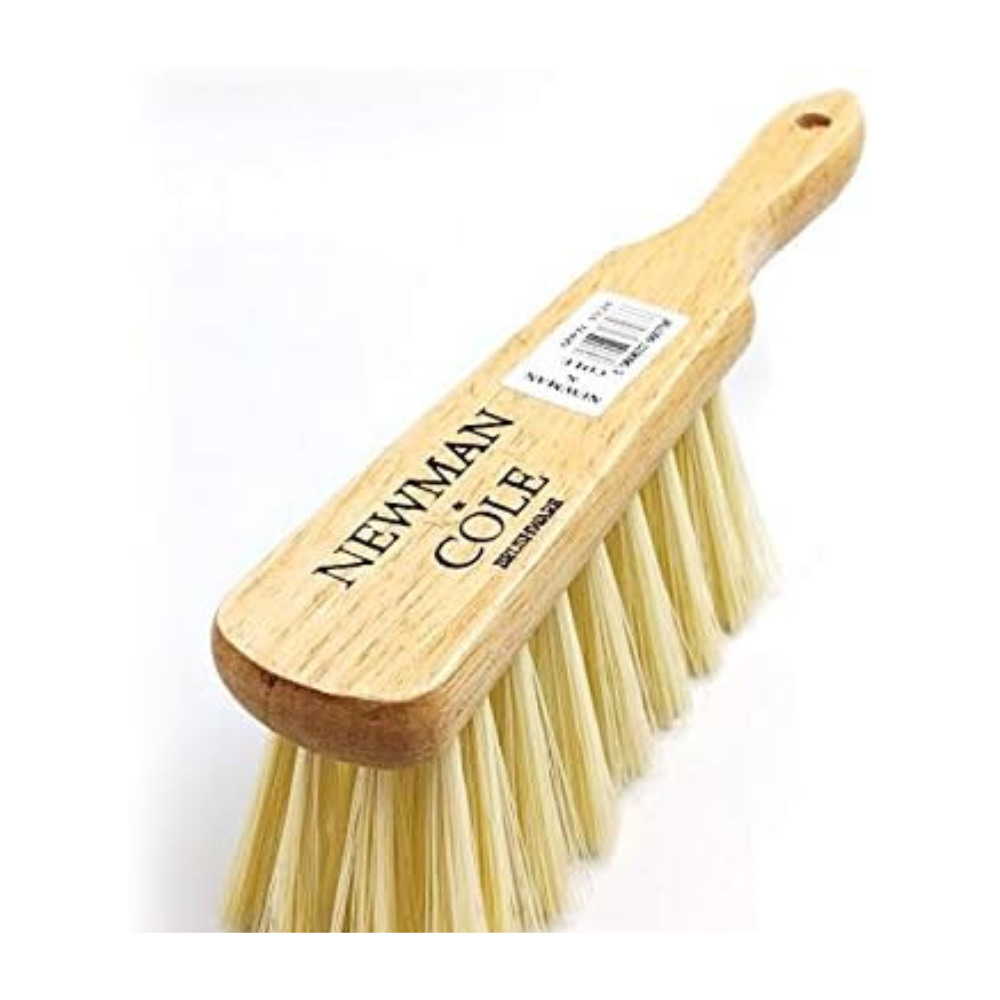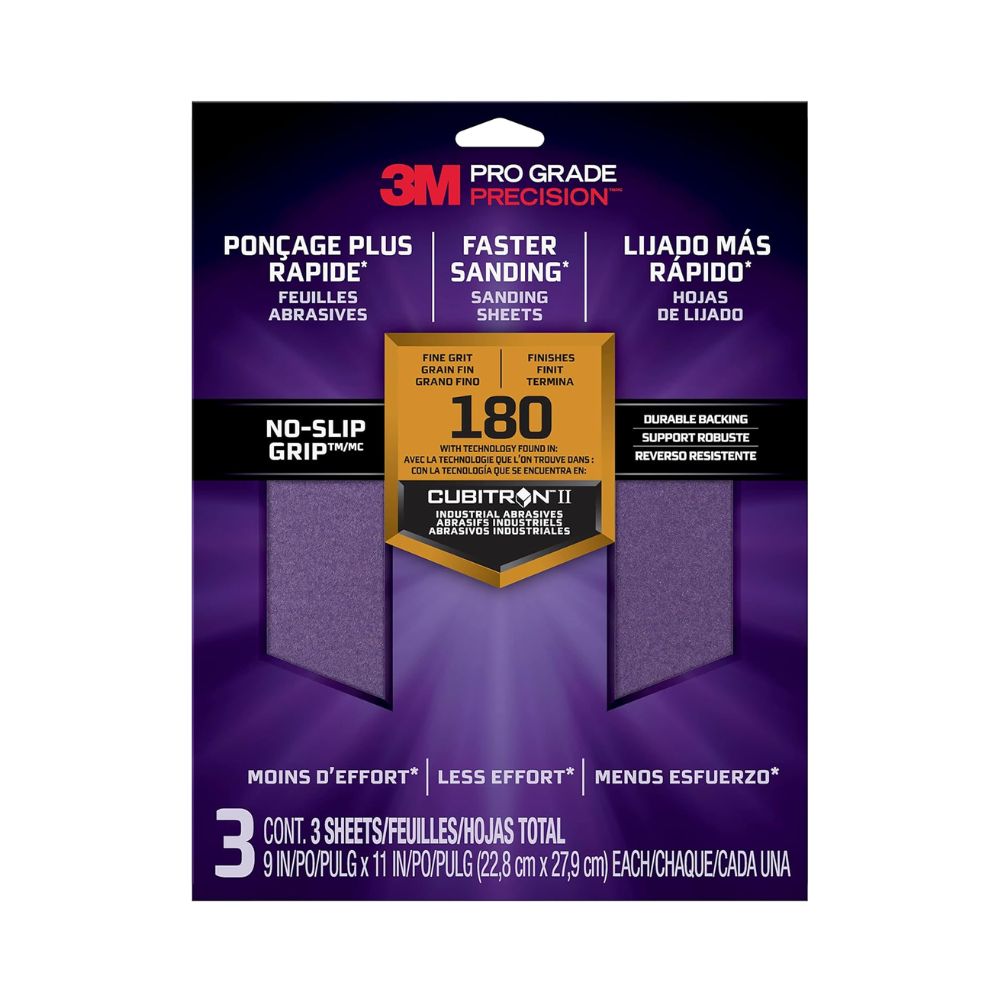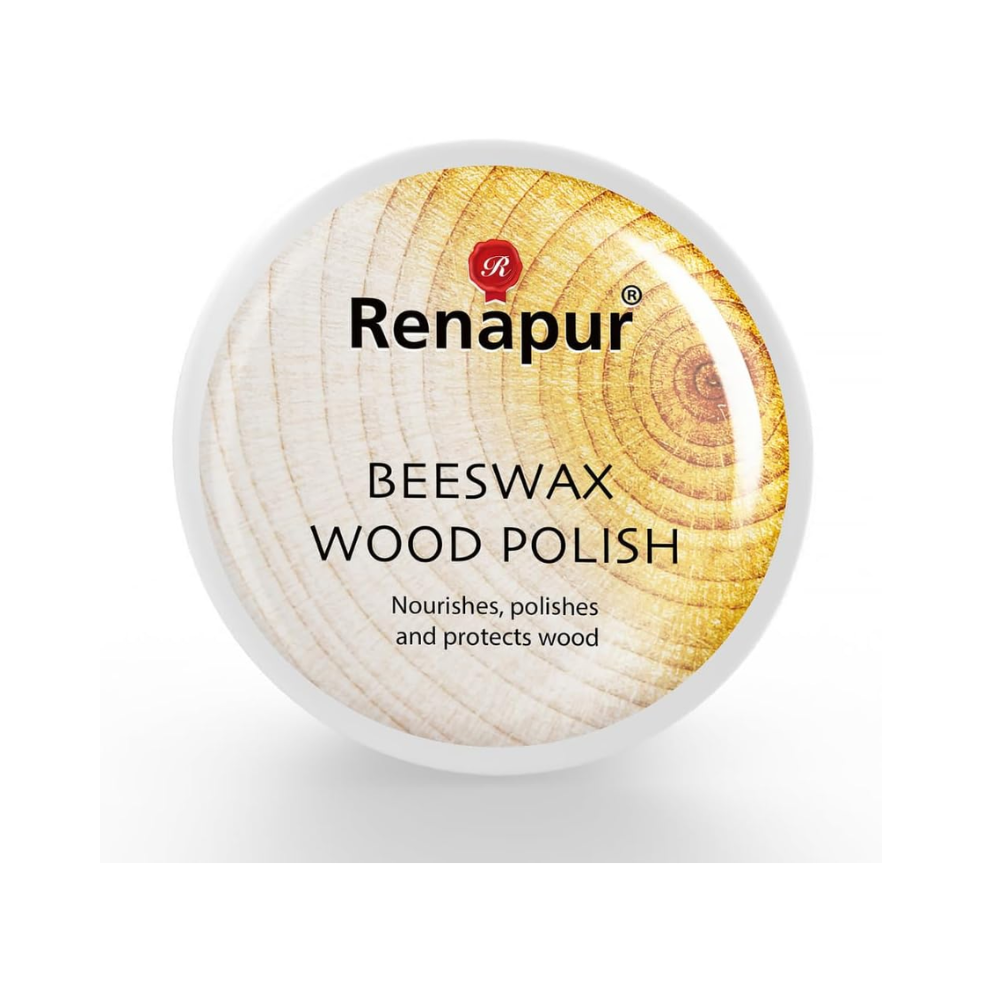How to restore faded outdoor wood furniture – experts share 4 top tips on bringing new life to teak and more
Because a silvery patio set is not a good look for summer
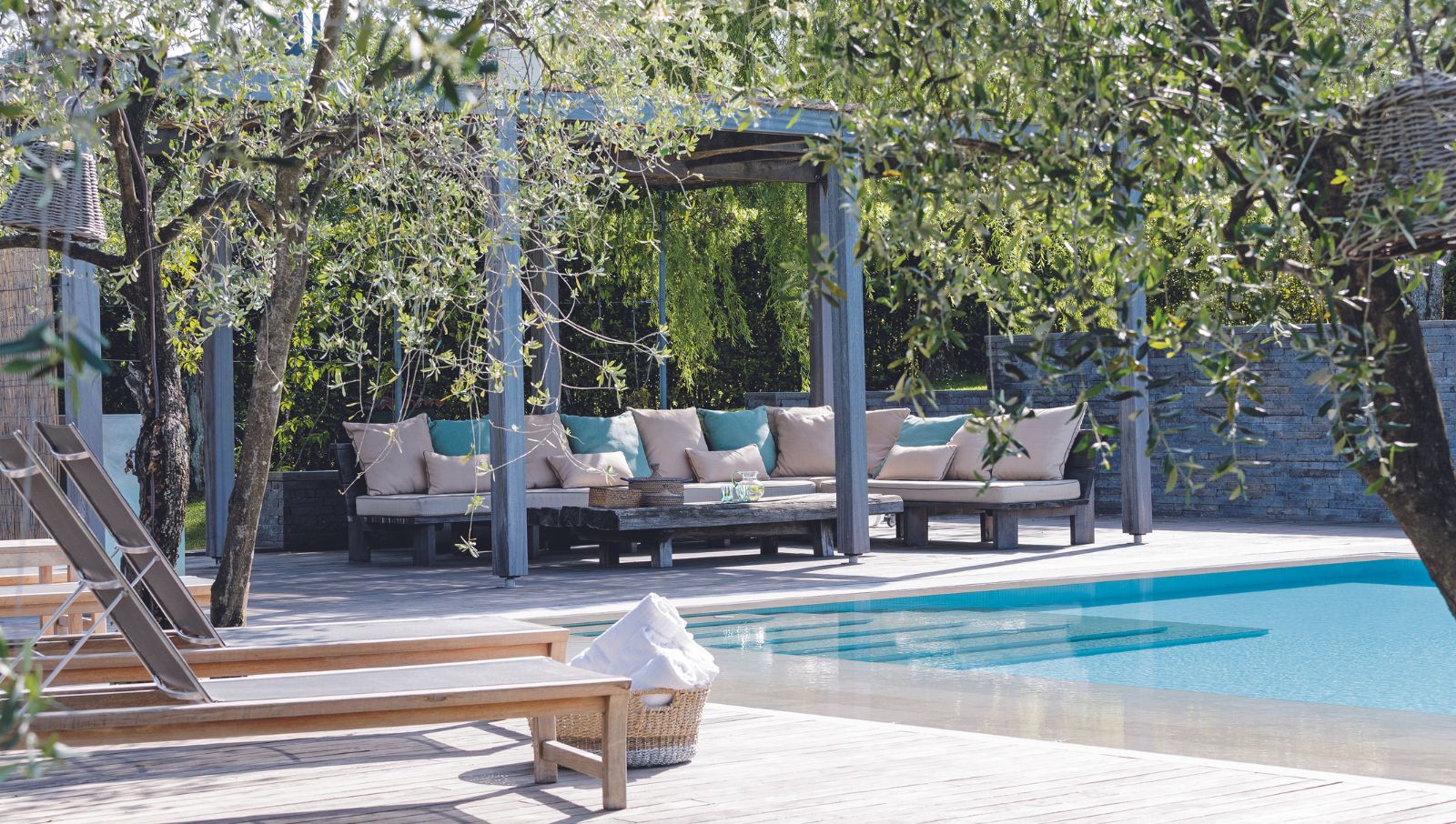

It is that time of year where many of us are refreshing our outdoor spaces for the warmer months ahead.
As spring patio prep is in full swing, this very much includes reviving the backyard and everything that has spent a long winter outside. Due to the nature of wood, it is natural even for the best types of wooden outdoor furniture to age over time. However, if sun bleaching has come on too strong as a result of your teak deck chairs or redwood bistro set being left to the elements, the chances are you want to restore the original hues.
So, can you restore faded outdoor wood furniture? Rest assured that silvery, UV-damaged pieces will not be greeting guests at your next BBQ. We checked in with the pros to help give your patio ideas a well-deserved lift this spring.
How to restore faded outdoor furniture: step-by-step
'Wood furniture simply fades over time from UV exposure as well as the elements,' says Todd Harmon, the co-founder and CIO of Patio Productions. Todd explains how this job might be 'cumbersome to fix', but that it is not as difficult as you might expect to achieve good results. Plus, as much as we love a fresh outdoor furniture replacement, it should be done thoughtfully, and when the time is right. 'Restoring wood furniture is a great way to bring something back to life which helps to keep items out of the landfill.'

Todd Harmon is the co-founder and CIO of Patio Productions, a US-based site dedicated to providing consumers with quality outdoor furniture including an extensive Teak wood collection, wicker pieces, and more. Todd has experience in the design space and restoring faded outdoor wood furniture.
1. Prep and clean up your outdoor wood furniture
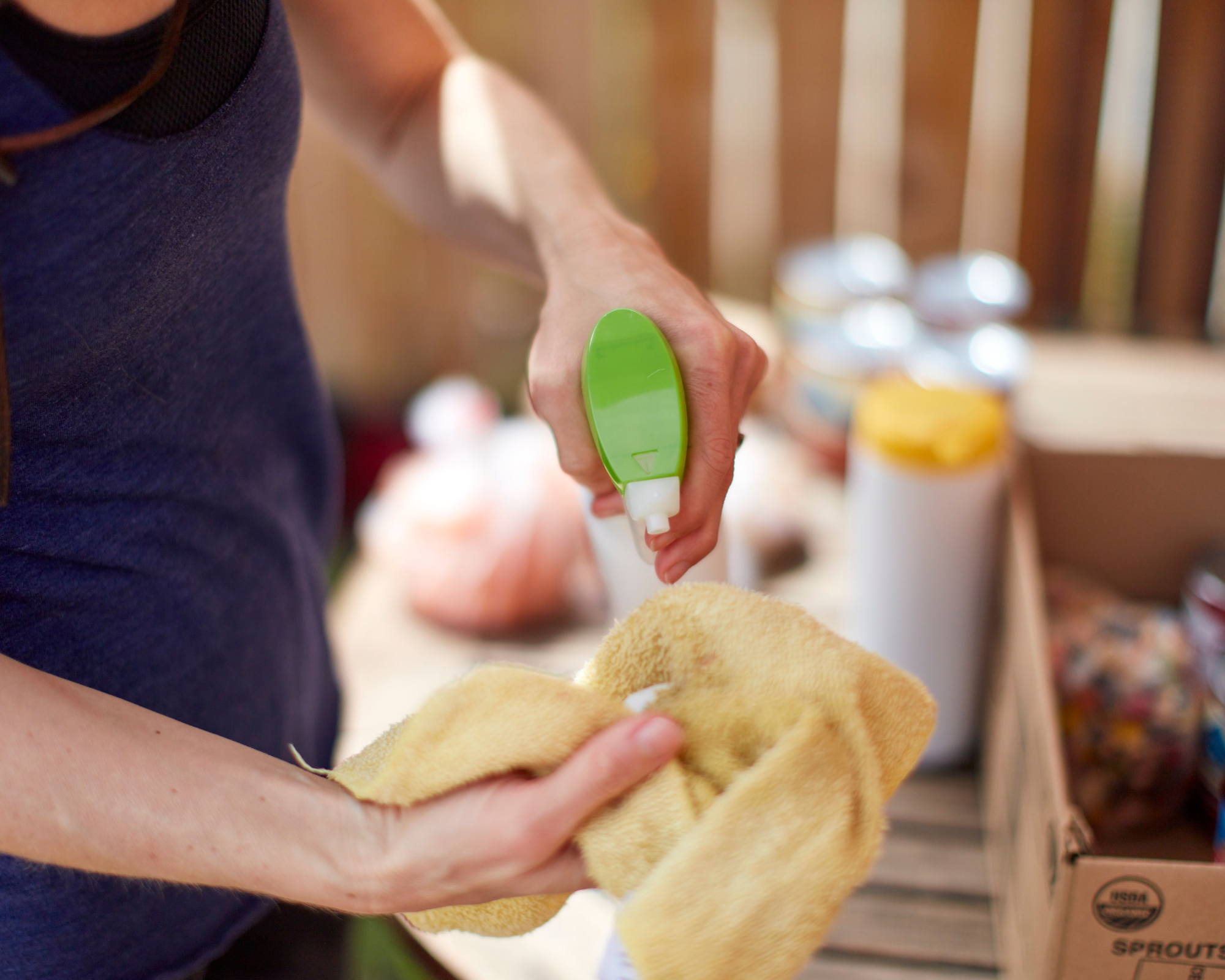
To restore faded pieces, begin by cleaning the outdoor furniture, and removing any dried debris with a brush. Be careful to work with the grain to not damage the wood. Try to find an eco-friendly cleaner suited to the wood type, or make a mild dish soap solution with warm water (not boiling).
Joel Hirshberg, President of Green Building Supply recommends one of its products for the job: 'Start by cleaning with our Rubio Monocoat Wood Cleaner.' This can be used for soft and hardwoods, which is ideal, and it is non-toxic and high-performing.
For teak in particular Emma Putrimas, VP of product and design at Teak Warehouse recommends the following: 'To bring your teak furniture back to life you will be a brush with medium to soft bristles, water, and a soft solution that won't harm the teak (we like Simple Green), and a dry cloth.' You can find Simple Green at Home Depot.
There are other teak-specific cleaning products like the Furniture Clinic's on Amazon which has sound reviews.
2. Sand badly affected surface areas
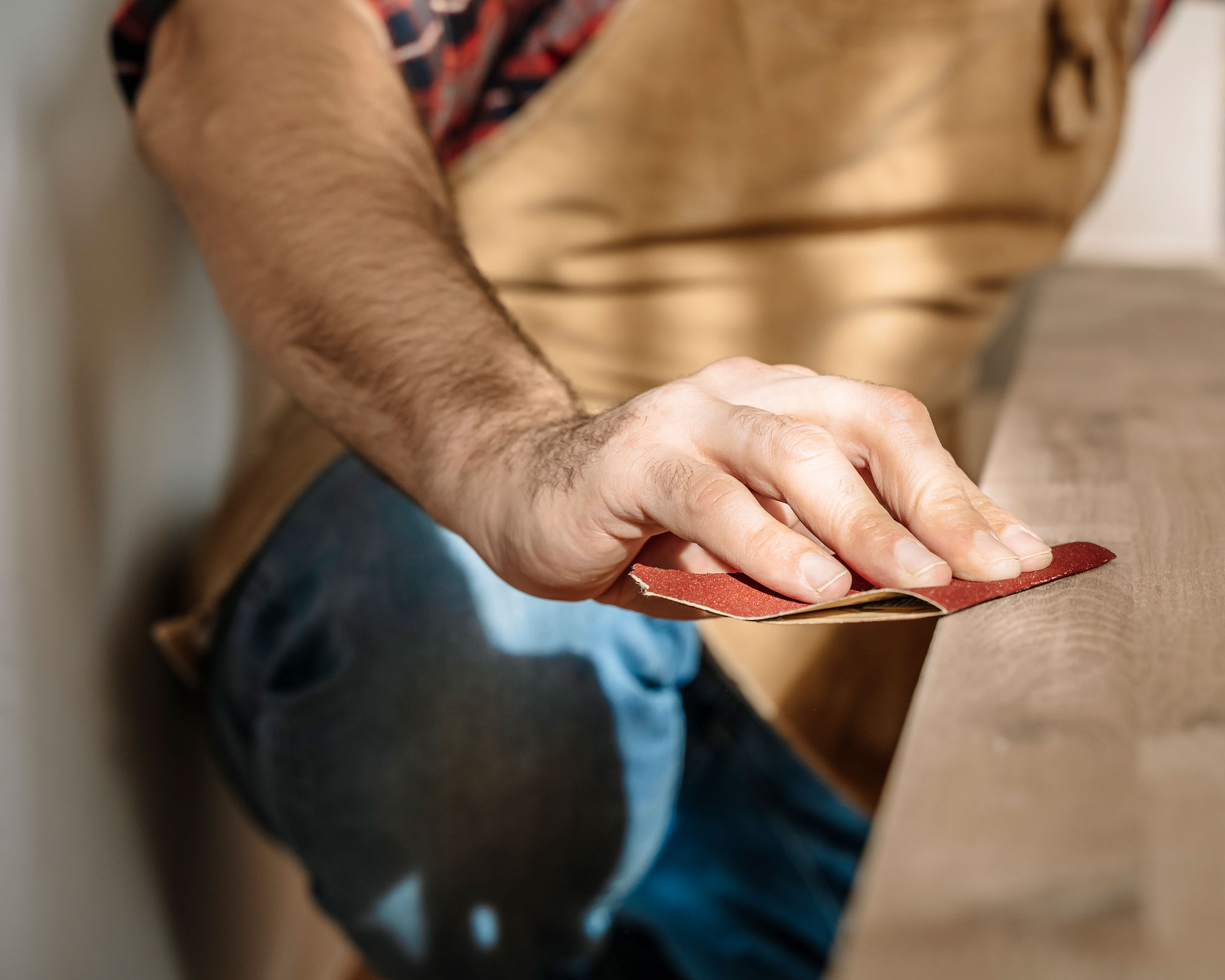
If you need to know the ins and outs of sanding outdoor furniture, we recommend starting with our handy guide. It is not as difficult as you might think and will bring up weathered and sun-bleached patio furniture in no time.
'One of the more common and DIY-friendly ways to restore faded outdoor furniture is to begin by sanding the surface of the wood furniture to remove the faded layer and reveal fresh wood underneath,' continues Todd.
If you are working on small areas, you should be able to cover this by hand, in which case a fine grit sandpaper from about 180 will do. Todd adds: 'Opt for sandpaper with a finer grit to avoid excessive removal of wood.' This 180-grit pack from the ScotchBlue Storei on Amazon is a good contender for the job.
3. Restore color with a stain
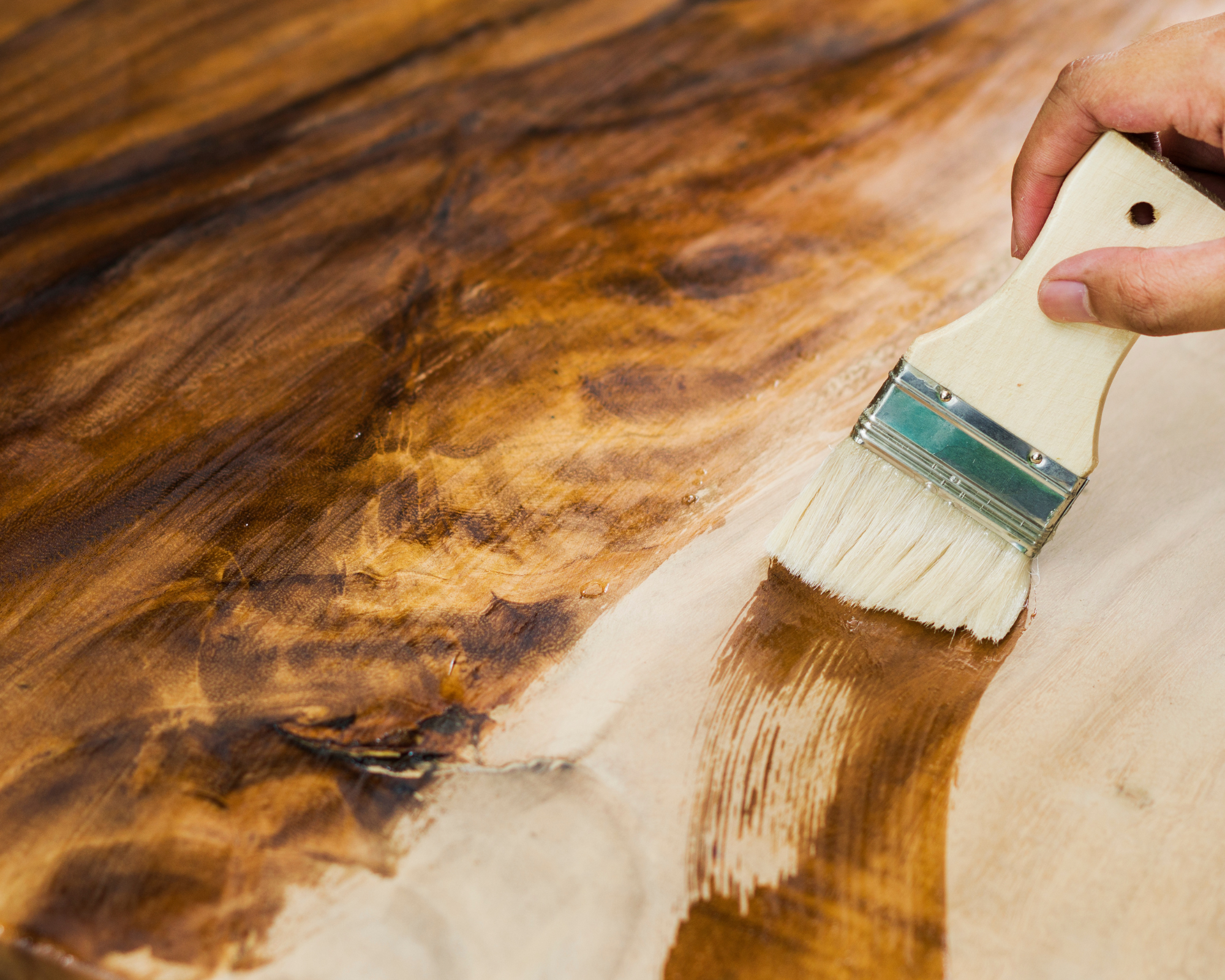
To restore color and for a uniform look, a stain could be a key step. 'Then apply an eco-friendly wood stain or sealant to protect the wood and enhance its appearance,' continues Todd. 'Look for products labeled as low-VOC (volatile organic compounds) or water-based for minimal environmental impact.'
We found a water-based stain by Littlefair's on Amazon. It is non-toxic and eco-friendly for use on outdoor furniture and more in your yard. It needs to be applied to bare wood, so sanding will be important here. The Furniture Clinic store on Amazon offers an alternative that is also eco-friendly and that has good reviews. It recommends its teak oil (also on Amazon) after use to prevent further UV damage or warping.
For an even more eco-friendly method to restore silvery outdoor wooden furniture to its former, uniform color, Todd shares some natural recommendations that make a fine excuse to use the espresso machine.
'Another less common way you can restore wood furniture is by using more natural ingredients you would have around the home. For example, you can brew a strong batch of black tea or coffee and apply the cooled tea or coffee to the faded wood using a brush or cloth, allowing it to soak into the wood for a natural staining effect. Keep in mind that multiple coats may be necessary to achieve the desired shade.
'Then once dry, seal the wood with an eco-friendly sealant to protect the stain and prolong its longevity.'
4. Apply an appropriate sealer
This takes us to choosing a quality wood sealer. For any piece of wooden outdoor furniture to stand a chance against the elements, this is essential. This needs to be applied when your furniture is clean and completely dry, this goes for all types of wood including teak. You should choose a product that suits the wood type you are working with and always test your sealant on an inconspicuous area before using it all over.
If you have been able to remove gray and uneven tones from your furniture by cleaning and sanding alone, or with a stain, you might be tempted to choose a clear sealer. However, Joel recommends a pigmented formula for longevity and to act as a natural barrier against UV rays. 'The sun is the main culprit. Use pigmented finishes instead of clear finishes.' Even a semi-transparent stain will be more durable against the elements.
'All wood species will fade in the sun unless they are finished with a sealer that contains pigments which do the heavy lifting in UV protection.'
Naturally, Joel suggests some Green Building Supply products: Rubio Hybrid Oil or Rubio DuroGrit exterior zero VOC oil-based finishes. 'Or, use our Vermont Natural Coatings Polywhey Exterior Stain finish which will also produce a long-lasting finish.'
Especially when doing this yourself, always choose a product from a reputed company and read reviews from others to understand any health hazards and other details to be aware of when using them.
FAQs
How can I stop outdoor wooden furniture going gray?
All wooden furniture when not sealed will be susceptible to UV damage. Teak makes a good outdoor furniture wood choice but can still turn silvery-gray in the sun if not well looked after. Prevention is better than cure in most cases and ensuring any wooden furniture left outdoors is properly treated and sealed is essential to protect it from UV degradation, water damage, and more. If you are going to leave outdoor furniture in the rain, or sun, consider furniture covers in particularly exposed yards to offer additional protection against the elements, year-round.
In brighter seasons, consider keeping them where there will be shade – under a covered patio, for instance. A patio umbrella can also provide protection, as could an awning or pergola to limit direct UV exposure. Finally, take care of your furniture, wiping it down every few weeks as part of your regular backyard cleaning schedule so as not to let debris build-up.
Can you make your own outdoor wood stain polish?
If you cannot find a polish that suits, consider making your own as per Todd's recommendation. 'You can also make your own eco-friendly wood polish by melting beeswax and mixing it with a small amount of olive oil or jojoba oil,' says Todd. 'Beeswax provides a protective barrier against moisture and helps restore faded wood to its former glory.'
Make this simple method to restore faded outdoor furniture part of your spring home maintenance and sunbleached outdoor furniture will not put a dampener on your backyard design ideas this summer. Here are some tools and materials that might come in useful for this and other backyard fixes:
Do not make the outdoor furniture mistake of neglecting your favorite pieces. If you want to look more specifically at keeping teak sets looking gorgeous, we have some tips on how to prevent teak furniture from bleaching in the sun, too. Once you have achieved beautiful results, you can continue onto less rigorous DIYs shall we say, like making a bird bath...
Sign up to the Homes & Gardens newsletter
Design expertise in your inbox – from inspiring decorating ideas and beautiful celebrity homes to practical gardening advice and shopping round-ups.

Camille is the former deputy editor of Real Homes where she covered a broad range of topics, including house tours, small space design, and gardens. She studied English language and Italian at the University of Manchester and during a year abroad studying linguistics and history of art in Bologna, Italy she started documenting her adventures and observations in a blog. Camille is always creating and spends her downtime painting, taking photos, traveling, and writing short stories.
-
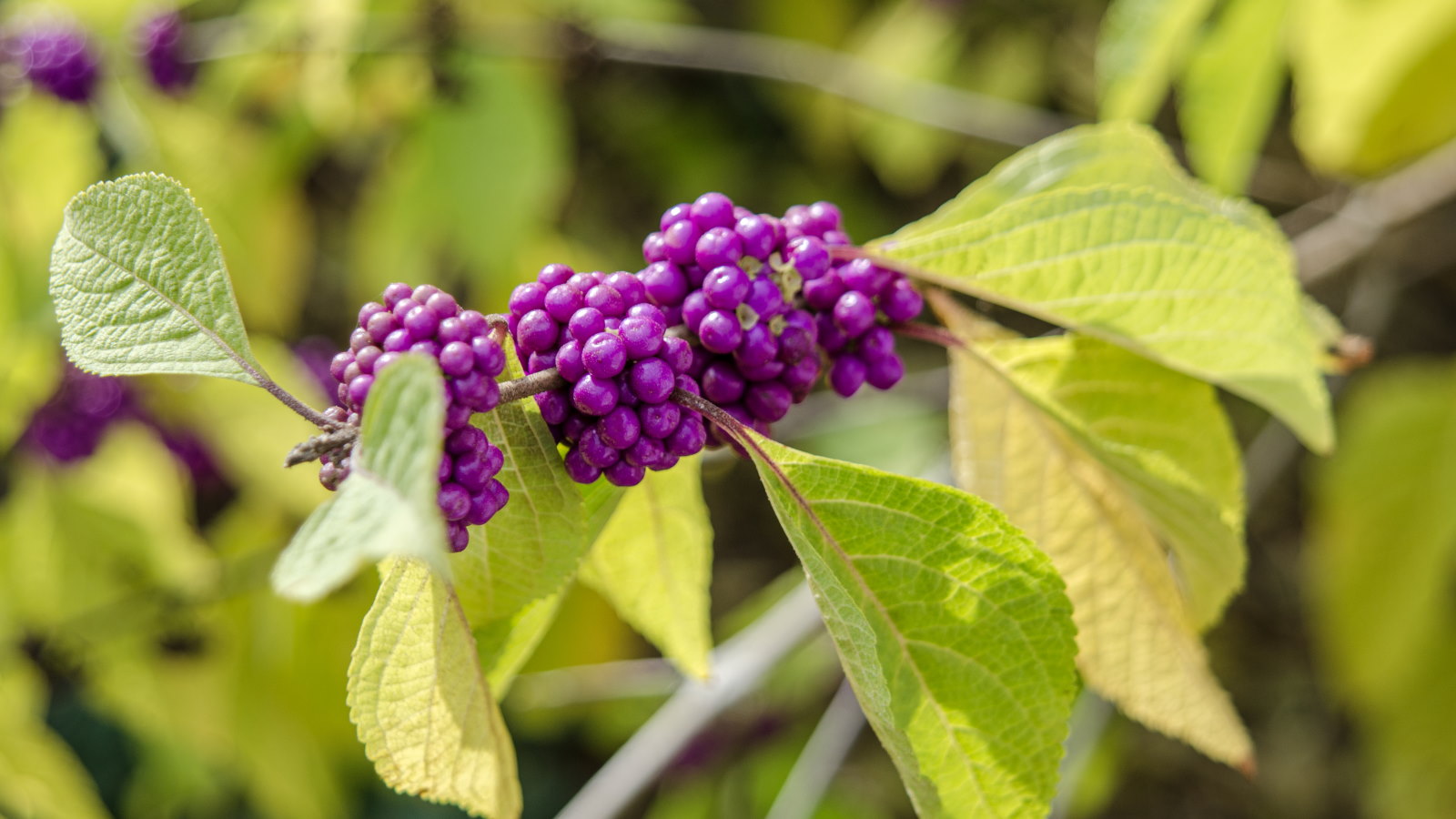 April is the ideal time to prune beautyberry shrubs – for a stunning display of vibrant berries this fall
April is the ideal time to prune beautyberry shrubs – for a stunning display of vibrant berries this fallWhether you choose to trim gently or hard prune, cutting back in spring promotes healthy and productive growth
By Drew Swainston
-
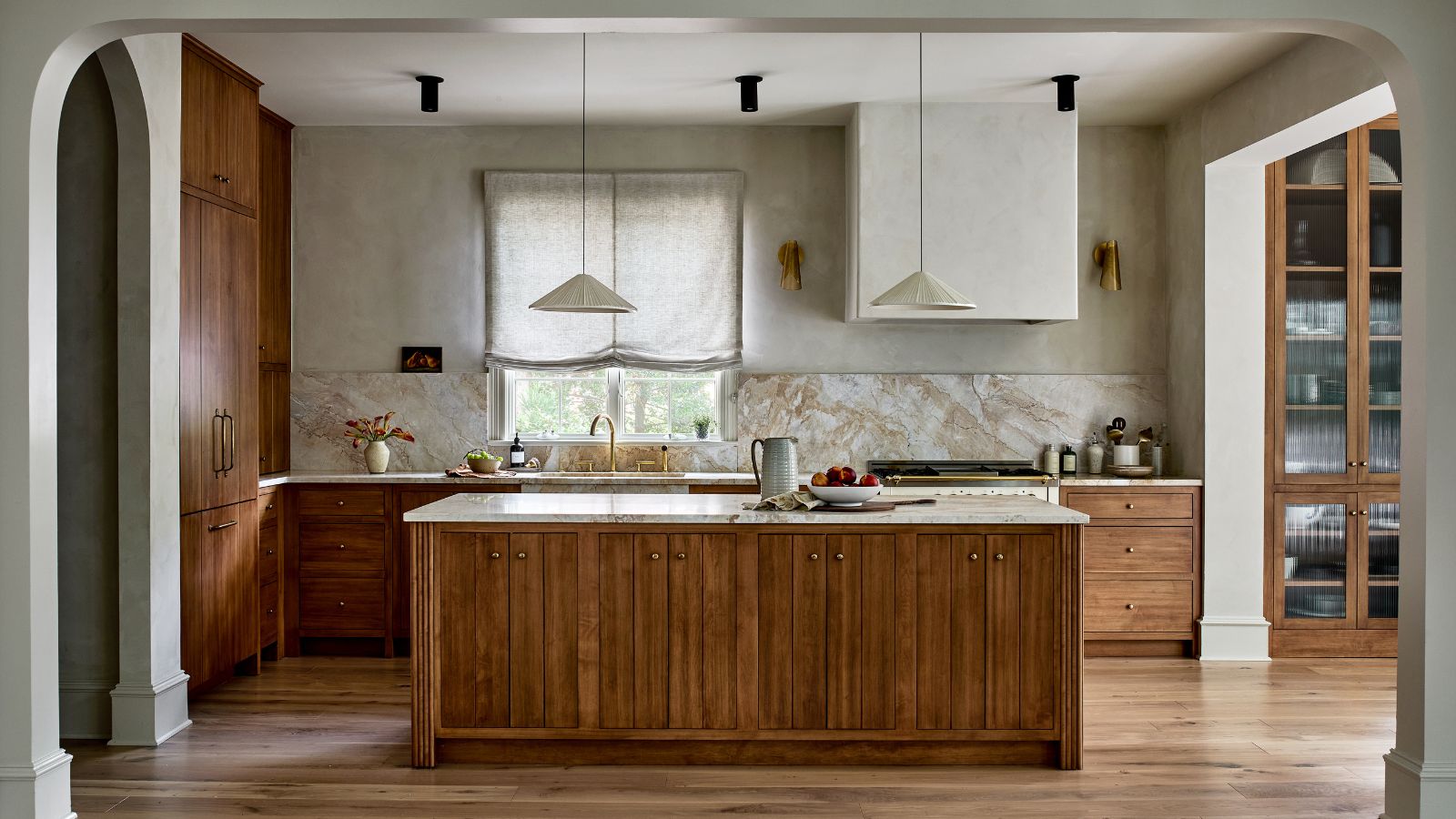 This kitchen has been transformed from cramped and outdated to warm and welcoming – and it's all thanks to a few thoughtful Japandi-style features
This kitchen has been transformed from cramped and outdated to warm and welcoming – and it's all thanks to a few thoughtful Japandi-style featuresWarm wood tones, textural designs, and considered contrast are key to this beautiful transformation
By Molly Malsom
